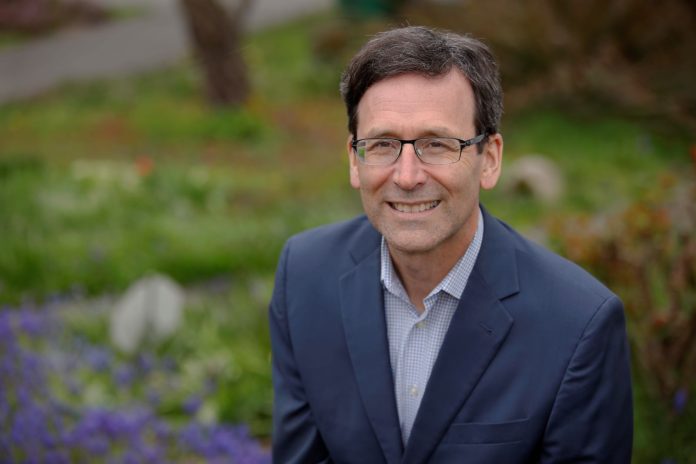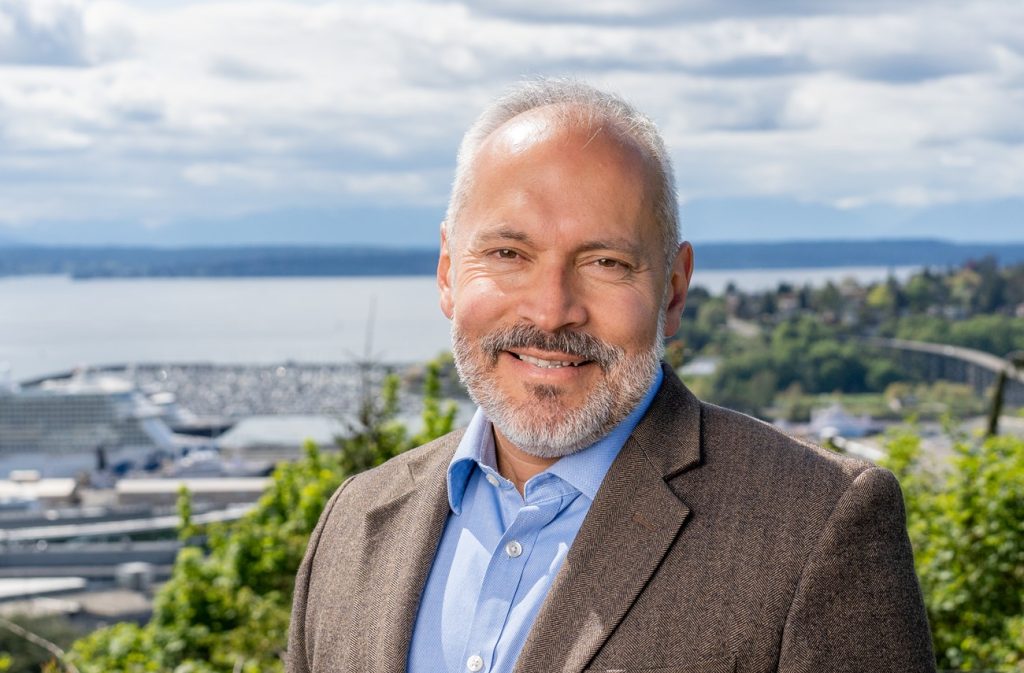
County councilmembers are sounding the alarm after Governor Ferguson’s opposition to lifting the property tax cap threw their future budget into chaos.
As the Washington State Legislature races towards the session’s finish line this weekend, big questions remain about how much new revenue will be included in the final 2025-2027 state budget proposal. The stakes are high given a hefty $16 billion budget deficit over the next four years. Any reduction in new revenue proposals will need to be offset by more cuts to public services, and many lawmakers are viewing state services as essential as the federal government pulls back.
The legislature revamped their budget proposal after Governor Bob Ferguson indicated that he would veto any budget that hinged on a wealth tax, which was a cornerstone to both the Senate and the House budgets. Democrat legislators responded by creating a new $12 billion revenue package that excluded both the wealth tax and the Senate’s proposed payroll expense tax.
Instead, lawmakers would raise revenue mostly by boosting existing taxes, including the business and operations (B&O) tax, the capital gains tax, new sales taxes on self-storage unit rentals and nicotine products, and a levy on the sale of electric vehicle credits that would primarily target Tesla.
But Ferguson added further difficulty last week when he announced that the new proposal still contained too much new revenue.
“At a time of great economic uncertainty and assaults by the Trump Administration on core state services for working families, raising $12 billion in taxes is unsustainable, too risky and fails to adequately prepare Washington state for the crisis that looms ahead,” Ferguson wrote.
The Urbanist reached out to Ferguson’s office to ask what he thinks the appropriate ratio of new taxes to cuts would be in the 2025-2027 budget, but his office said he doesn’t have anything to add to his previous statements.
One of Ferguson’s stated reasons for wanting to limit new revenue is the new Trump administration. “While our budget situation is currently challenging, it may soon become dire with additional cuts and chaos from the Trump Administration. We must defend Washington in the face of that,” Ferguson wrote.
However, it is unclear how championing a budget that would create greater austerity in the state while failing to identify robust new revenue resources would insulate Washingtonians from the shocks from coming cuts to federal funding, punishing tariffs, and continued assaults on the rights of marginalized people and the rule of law itself.
While it’s clear the majority of Democratic legislators do not agree with Ferguson, Rep. Shaun Scott (D-43, Seattle) made his objections particularly clear on Wednesday evening when he participated in a sit-in with a few educators at the governor’s office. The group was demanding a meeting with the governor to demand he tax the rich and not implement devastating cuts that would impact ordinary people across the state.
The property tax cap bill hits a roadblock
One of the new revenue generators included in all the Democrats’ proposals thus far has been raising the 1% property tax revenue growth cap, which would impact not only the state budget but also local budgets such as King County’s.
“Colleagues will all be keenly aware that the adjustment to the 1% cap to allow us to keep more closely up with inflation has been the top legislative agenda item on our legislative agenda for years and years now,” King County Councilmember Claudia Balducci said at a King County Council meeting on Tuesday. “We are as close as we have ever been to having some remedy on this cap.”
Capitulating to ballot campaigns and pressure from Tim Eyman, the state legislature instituted the 1% cap in 2002, since which inflation has averaged 2.77% annually and King County’s population has grown by 30%. The relatively low inflation environment since its passage has delayed the inevitable county budget crisis, but inflation was exceptionally high in 2021 and 2022 and has remained higher than 1% over the last two years.
However, the Washington State Standard reported on Monday that “the property tax battle is over in the Washington state Legislature.” The sponsor of the legislative vehicle for enacting the new policy, Rep. Steve Bergquist (D-11th, Renton), added a new amendment to the bill on the weekend that removed the sections about amending the growth limit of the property tax.
On Tuesday, Balducci shared that Ferguson had floated the possibility of making a line-item veto of the ability for municipalities to raise the cap, should it make it into the final budget proposal. This lines up with Bergquist’s statement to the Washington State Standard that lawmakers didn’t have a three-corners agreement on those provisions, meaning support from the House, the Senate, and the Governor.
This continues Ferguson’s repeated threats to veto the state’s budget should it fail to meet his expectations, which have previously included $100 million in police officer hiring grants and not passing a wealth tax.
Now that Governor Ferguson is on record opposing a wealth tax, the stakes for HB 2045 are even higher. Passing this corporate tax with no exemptions for billion dollar big businesses means fewer cuts to education, to healthcare, to the social safety net in Washington State.
— Shaun Scott 🌹🤝 (@organizewithshaun.bsky.social) April 7, 2025 at 10:40 PM
[image or embed]
Balducci began circulating a letter to the governor for signatures on Tuesday, pleading for Ferguson’s support for the property tax cap lift. She sent the letter on Wednesday morning, signed by herself as well as Councilmembers Jorge Barón, Teresa Mosqueda, and De’Sean Quinn.
“A necessary complement is the property tax revenue growth cap bill that slows the degradation
of long-term property tax revenues, is more resistant to economic downturn, allows revenue to
more closely align with expenses, and it is a more progressive source of funding,” the letter reads. “Without a lift in the 1% property tax revenue growth cap, King County will face a general fund shortfall to pay for these services starting in 2028.”
“We are hoping that there may still be a window to talk about this issue,” Barón told The Urbanist. “And so we haven’t given up.”
King County’s budget situation
King County is expecting a minimum $150 million budget deficit in 2026-2027.
“There’s so many potential gaps that could be coming from federal legislation and federal actions that we keep talking about our budget deficit being $150, $160 million for the next biennium, but that is based on what I would say are very optimistic projections that may not turn to be the case,” Barón said.
Dwight Dively, King County’s Performance, Strategy and Budget Director, appeared to concur during his presentation on Tuesday.
“I think it’s fair to say the state does not have the financial ability to backfill those [potential Medicaid cuts] in any meaningful way, so those get passed on to local governments like King County Public Health and to our residents,” Dively said. “So while there are those conversations, we have this confluence of very serious local budget issues, as you’re very familiar with, we have serious state budget issues, and then we have these federal budget issues, both in the current budget and the future budget, and everyone’s looking to somebody else to come up with a way to deal with it, and nobody has the resources other than the federal government.”
Any cuts in the new state budget could have profound impacts on King County’s budget as soon as July 1. Dively is particularly concerned about revenue assumed for the remainder of 2025 for Public Health and the Department of Community and Human Services. If some of those resources are no longer provided by the state, Dively said, “then we have an immediate problem […] that we may have to deal with by literally disappropriating money that we had already included in the budget and cutting those services.”
King County is constrained by state law in terms of how it can raise additional revenue, creating a challenge for budget writers. “We don’t have the same tools, or at least the same flexibility, to make changes to our own taxing structure, as say, the City of Seattle or the state,” Barón said.
If the property tax cap is lifted by the state legislature, King County could expect to collect an additional $25 million for the 2026-2027 biennium. More importantly, the removal of the cap would set the county on the path of more sustainable financial health.
“I think the county has done a good job of keeping its expenses low, but with the recent increase in inflation, we’re getting to the point where we cannot maintain the level of services that we currently have,” Barón said. “So that’s the challenge with the cap is that it forces the county to live on an ever-decreasing amount of resources, when you compare it to the actual cost of providing services because of population growth and because of inflation.”
Another possible new source of revenue for King County is the “public safety” 0.1% sales tax included in HB 2015. This sales tax could be used for services that assist the criminal legal system, which aside from law enforcement agencies, prosecutor’s offices, courtrooms, and jails, could include domestic violence services, public defense, diversion programs, reentry work programs, alternative response, and even programs that reduce homelessness.
The Seattle Times reported that a similar county 0.1% sales tax for the Doors Open program was anticipated to bring in $100 million in 2025. However, due to the volatility of the national situation and the potential of a recession, Barón said Dively had advised him not to assume more than $90 million per year from the public safety sales tax.

Even so, $90 million annually could potentially cover the county’s budget deficit, at least in the short term and barring major federal cuts. However, the property tax adjustment would still be needed for longer term stability. “While HB 2015 would help “stop the bleeding” of our immediate shortfall, it does not allow for increased needs across the county over time and it remains vulnerable to the effects of an economic downturn,” Balducci’s letter stated.
Unfortunately, a sales tax increase is a regressive tax that places more burden on lower-income individuals.
“I don’t think that is the ideal solution that many of us are looking for,” Barón said. “I think it is a tool that we may have to use to make sure that we don’t see the kind of drastic cuts that we would otherwise be facing at the local level. But I would love to continue to work with the legislature to create better options to fund these basic services long term.”
Most of the criminal legal services in King County are supported by the budget’s general fund, which is the part of the budget that is not pre-allocated for specific purposes. Barón suggested that if the council was using the designated sales tax funds for criminal legal programs, some pressure would be removed from the general fund, meaning it could be used to fund programs such as public health that serve the county’s marginalized and lower-income residents.
At the Tuesday meeting, several councilmembers spoke of the need for King County to have more progressive revenue options.
“We need progressive revenue, and that is a message directly to the governor and their team, as well as our state legislative members who’ve been trying to couple these items together this entire session,” Mosqueda said. “This is how we insulate from the additional cuts coming from the feds, and it’s how we respond to our growing population and growing needs locally that we have not been able to respond to in full because of this arbitrary cap from 23 years ago.”
In the meantime, the current session of the state legislature is scheduled to end on Sunday, May 27. Without a fix for its own budget woes, however, the state legislature could be headed for a special session.
Amy Sundberg is the publisher of Notes from the Emerald City, a weekly newsletter on Seattle politics and policy with a particular focus on public safety, police accountability, and the criminal legal system. She also writes science fiction, fantasy, and horror novels. She is particularly fond of Seattle’s parks, where she can often be found walking her little dog.


